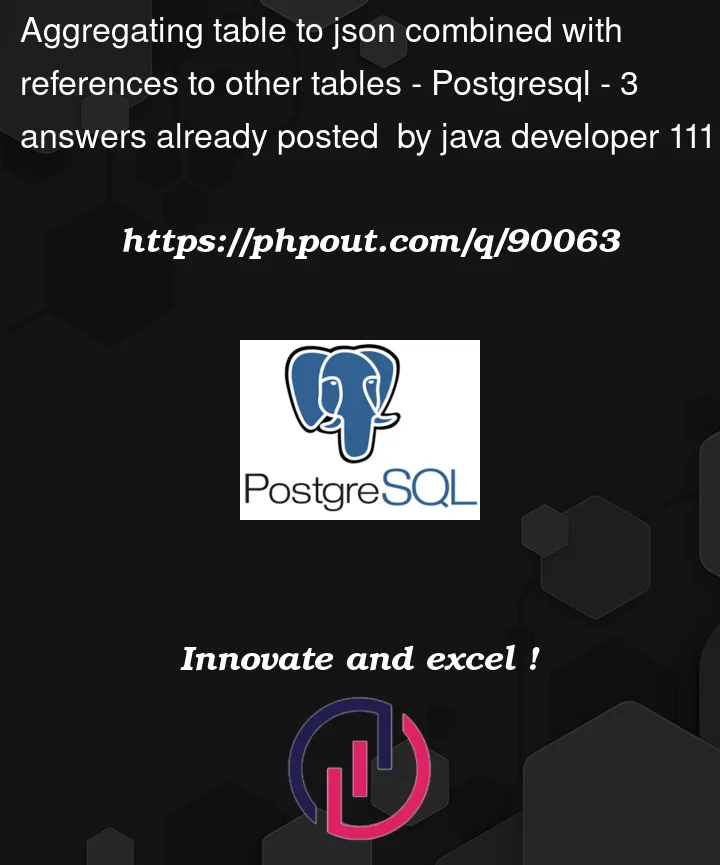Table A:
| id | status |
|---|---|
| 1 | 1 |
| 2 | 4 |
Table B:
| id | status | a_id |
|---|---|---|
| 1 | 1 | 1 |
| 2 | 3 | 1 |
| 3 | 5 | 2 |
Table A (
id int,
status int);
Table B(
id int,
status int,
a_id int foreignt key reference A
);
How to make query that return such output, when I seek status in (1,3)?
| id | status | arrayjson |
|---|---|---|
| 1 | 1 | [{id=1,status=1,a_id=1},{id=2,status=3,a_id=1}] |
If I seek status in ( 3 ), it should return:
| id | status | arrayjson |
|---|---|---|
| 1 | 1 | [{id=2,status=3,a_id=1}] |
If I seek status in ( 4 ), it should return:
| id | status | arrayjson |
|---|---|---|
| 2 | 4 | [] |
If I seek status in ( 5 ) it should return:
| id | status | arrayjson |
|---|---|---|
| 2 | 4 | [{id=2,status=4,a_id=2}] |




3
Answers
finally find the best solution
Given your set of seek status values, you can use:
GENERATE_SERIES, to generate your possible seek_status valuesJSON_BUILD_OBJECT, to build your json beginning from your B tableJSON_AGG, to aggregate your jsonWHERE v.seek_status IN (1,3), to change the seek_status you needORDER BY A.status DESC LIMIT 1, to get the highest status possible among all output recordsCheck the demo here.
This is you basic query with the filter on status from table
B(example for status 1,3)Now you need only to group on the first two columns and aggregate the JSON array.
json_agg and json_build_object are the solution